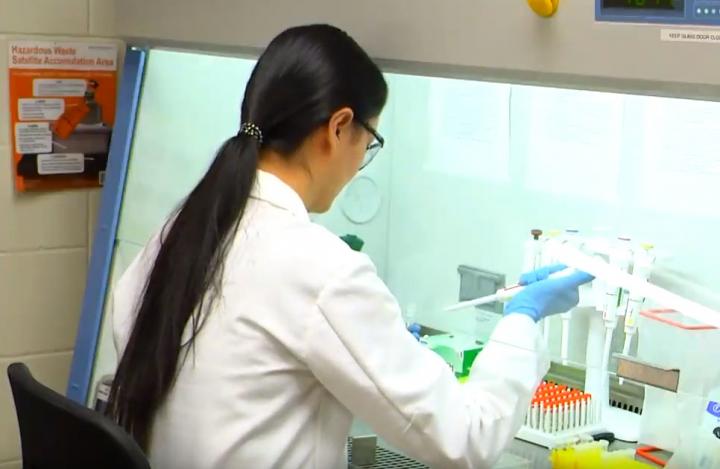
Credit: Iowa State University News Service
AMES, Iowa – Puberty is something we all go through and yet there is limited science to explain what is happening inside our bodies during this transition, and how it affects our physical and mental health.
The research that does exist focuses primarily on girls and often ignores the changes for boys, African Americans and LGBTQ youth, said Elizabeth “Birdie” Shirtcliff, an associate professor of human development and family studies at Iowa State University. She is part of teams of researchers working to expand our understanding of puberty.
“Puberty is a normal process, but how you go through puberty can really set your life off on a different trajectory,” Shirtcliff said. “There are risks for early development including anxiety, depression, social problems and physical health problems, such as cancer.”
For a special section in the Journal of Research on Adolescence, Shirtcliff and her co-authors look at why there is a lack of research on puberty in understudied populations and the potential consequences. In a second paper, they examine factors that may influence cognitive and hormonal changes during puberty. The special issue also identifies questions to tackle with future research.
Hair may hold the answer
As director of the Stress Physiology Investigative Team (SPIT) Laboratory at Iowa State, Shirtcliff and a team of graduate and undergraduate students are analyzing hair samples to study how hormones and environmental factors influence the process of puberty. The SPIT Lab is one of the first in the U.S. to measure sex hormones in hair. Shirtcliff says unlike a saliva sample, which provides a snapshot of one specific moment, a centimeter of hair captures a month of hormone exposure. (Watch this video to learn more about the lab: https:/
The hormones extracted from hair samples may provide answers about early and late onset of puberty. Shirtcliff says puberty can start between the ages of 8 and 10 – much earlier than most people think – and continue well into the early 20s. However, existing research is limited to the four or five years when children transition from looking like a child to an adult. Hair provides a direct measure of hormone exposure throughout, which may offer insight on what activates puberty, Shirtcliff said.
“Our goal is to understand the mechanisms inside the body that trigger this transition, and how factors such as nutrition, stress and environmental toxins affect that process,” she said.
Not all experiences are equal
Understanding how personal experiences and environmental factors shape and change hormones can help adolescents and their parents prepare for and deal with the emotional outbursts, aggression and other challenges associated with puberty. For example, in understudied groups such as African American boys, Shirtcliff says puberty changes their body in ways that seem desirable, but can be detrimental.
“We have this perception puberty is really great for boys because they get big and strong and these are things boys want. But African American youth going through puberty are viewed as less innocent and stronger or as menacing and a perpetrator, so it’s not necessarily a positive thing,” Shirtcliff said.
LGBTQ youth also have their own unique experiences. Shirtcliff says the transition to adulthood may change their bodies in ways they really do not want. There is limited research on ethnic and cultural differences and the risk of depression during puberty, but this is another area researchers would like to further investigate.
“The study of puberty is complex as every individual progresses through puberty in his or her own way. We need to embrace that complexity to advance the science,” Shirtcliff said. “In doing so, we can help teens and their parents navigate this transition and limit the risk for anxiety, depression and other health issues.”
###
The Society for Research on Adolescence provided funding for this research. Carlos Aylwin, Carlos Toro and Alejandro Lomniczi, all with Oregon Health and Science University; as well as Julianna Deardorff, University of California, Berkeley; Lindsay Hoyt, Fordham University; and Rona Carter, University of Michigan, contributed to the work.
Media Contact
Elizabeth ‘Birdie’ Shirtcliff
[email protected]




